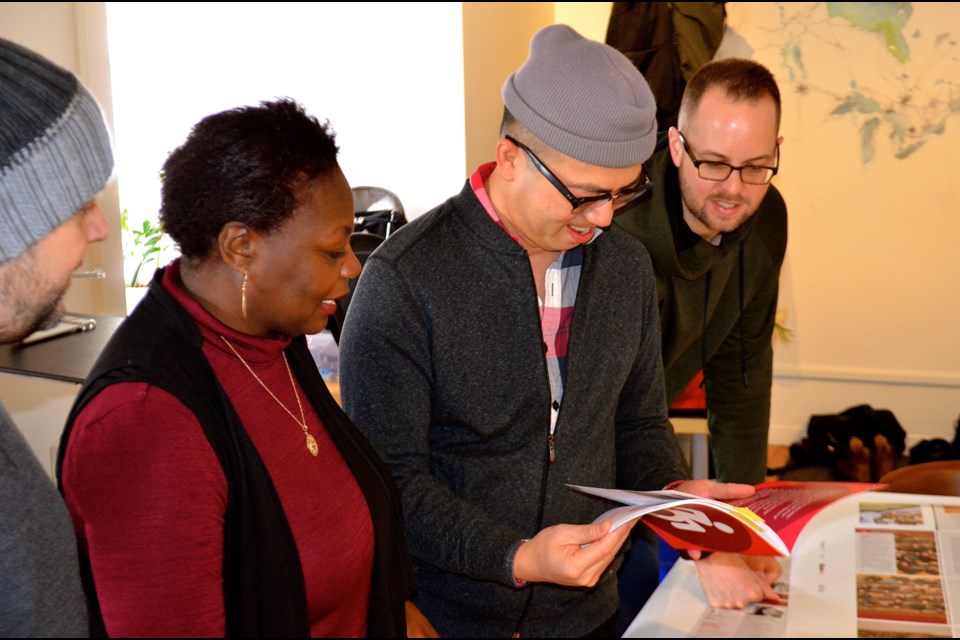Spiritualist writer Thomas Merton wrote “Art enables us to find ourselves and lose ourselves at the same time.”
Art in all its forms helps to define us culturally and expand our relationships to each other. It should, therefore, be accessible to everyone and that is why accessibility and inclusion are the central themes of the Arts Everywhere Festival this year.
“We are looking forward to a number of things and one of the main pieces is the importance of access for members of our community,” said festival director and program curator, Marva Wisdom.
“We are very excited to be able to bring a festival that is intentional in how we approach access and inclusion whether individuals face barriers around economic, cultural and physical abilities, sensory or otherwise.”
The festival runs from Jan. 22 to Jan. 26 and features performances, exhibits, workshops and activities that celebrate the diversity of creative expression through music, literature, ceremony, spoken word and visual arts.
“The presenters will be coming from different parts of the world, so, local and international,” said Wisdom. “We really want to inspire our community and recognise the importance of the arts and the changes it can make in our society.”
Those changes are reflected in the artists featured this year and in the efforts made to ensure each event is as inclusive and each venue is as accessible as possible. They even prepared an accessibility guide that among other things lists all the accessibility features of every venue in the festival.
“We have not done anything like this before,” said Wisdom. “We spent a fair bit of time at the venues for what we call an embodied audit. We took photos. We had great conversations with staff members, managers and owners about access.”
Festival staff and team members received accessibility training.
“We participated in a workshop from Tangled Arts and learned a lot about access and how you make events more accessible,” said Wisdom. “This all came about through work over the years with Bodies in Translation and at the University of Guelph. They have been tremendously helpful in pointing the Arts Everywhere Festival along this journey.”
There will be live captioning (surtitles) for many of the events as well as ASL (American Sign Language) interpretation and earphones to amplify or reduce sound.
“If you tell them you have sensitivity to certain sounds or light, if you are in a powered wheelchair and need more width or maybe you have a hearing impairment, you don’t even have to share that with us, you just need to show up,” said Wisdom. “If you feel more comfortable knowing ahead of time we have someone you can speak to and when you arrive we have access ambassadors that will help you navigate the entire festival.”
They have even made efforts to accommodate people who experience anxiety in public or crowded spaces.
“We have relax spaces and quiet rooms because some people get over stimulated and they don’t come to these events because they think it is going to be too much,” said Wisdom. “People can go on our website and see the information.”
Accessibility and culture of care lead Coman Poon hopes their efforts will act as a seeding initiative for growing accessibility culture and he invites other festivals to use the Access Guide for planning future events.
“It is not a proprietary document,” said Poon. “It is not just for this festival. We welcome others to use it as a free tool that challenges prejudice against people with disabilities or ‘able-ism’.”
Poon is the point person for all accessibility inquiries and can be contacted at [email protected] or 647 575-4202.
The festival opens Wednesday, Jan. 22, with a free event at the Art Gallery of Guelph curated by poet, author and visual artist Taqralik Partridge.
“It is her image we are using on our poster and on the front of our program,” said Wisdom. “She is going to be our featured literary artist at the event Friday night at the River Run as well.”
Partridge’s image of a damaged door with limited access on the side of a poorly maintained home is an apt metaphor for the challenges we face as we strive to improve access and include everyone in the conversation about something that should unite us all — art.



